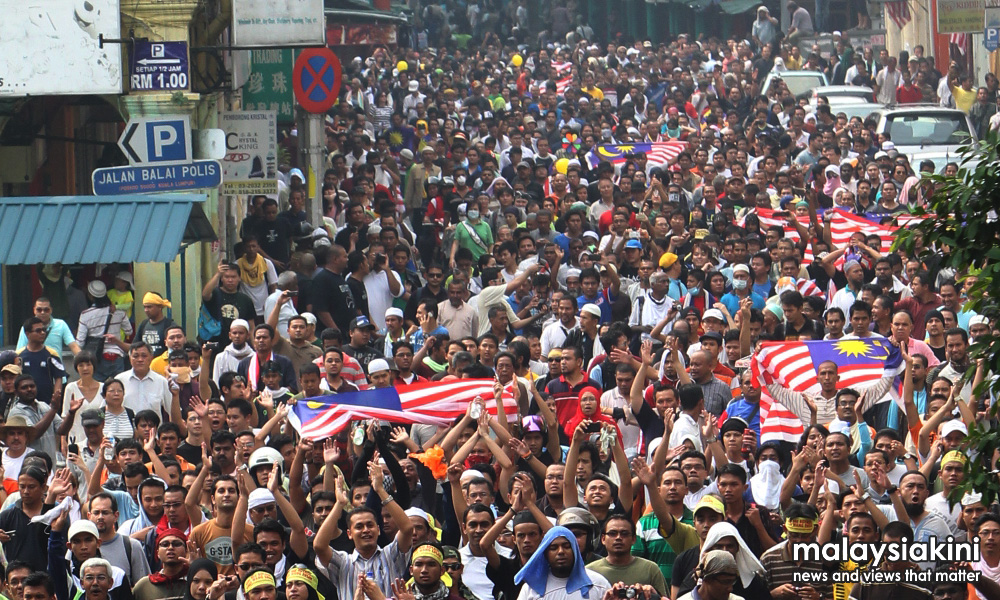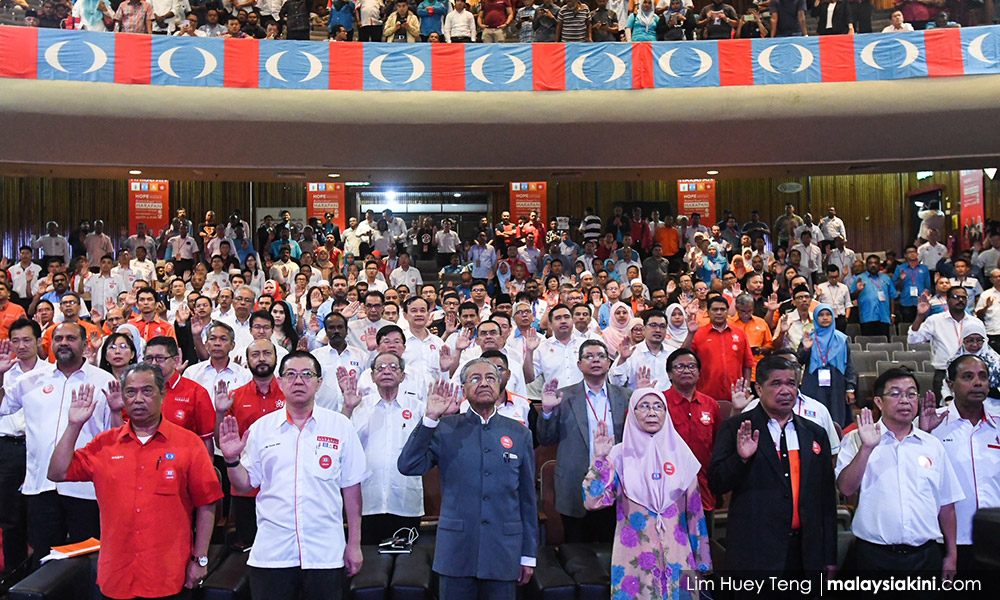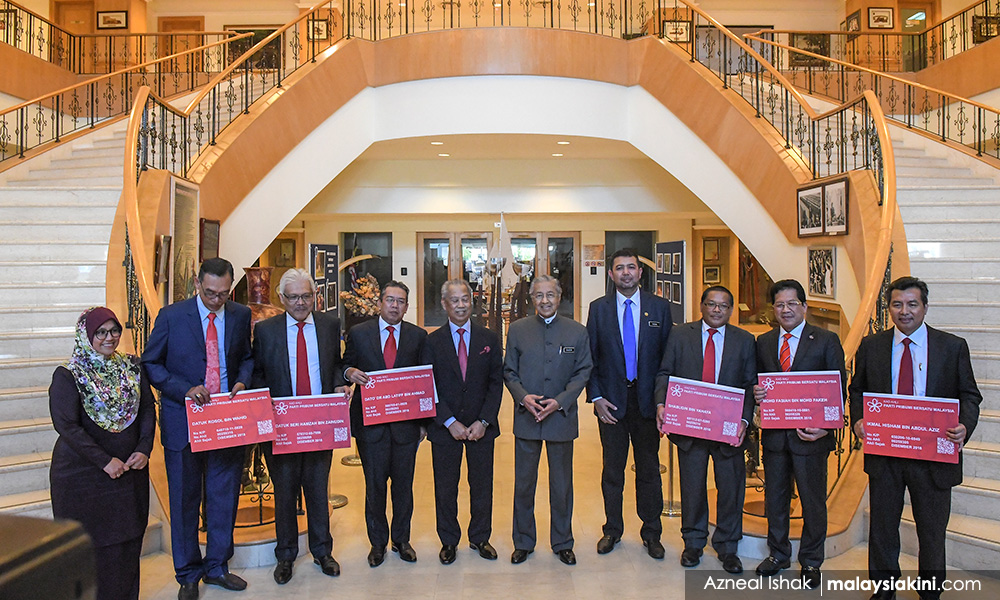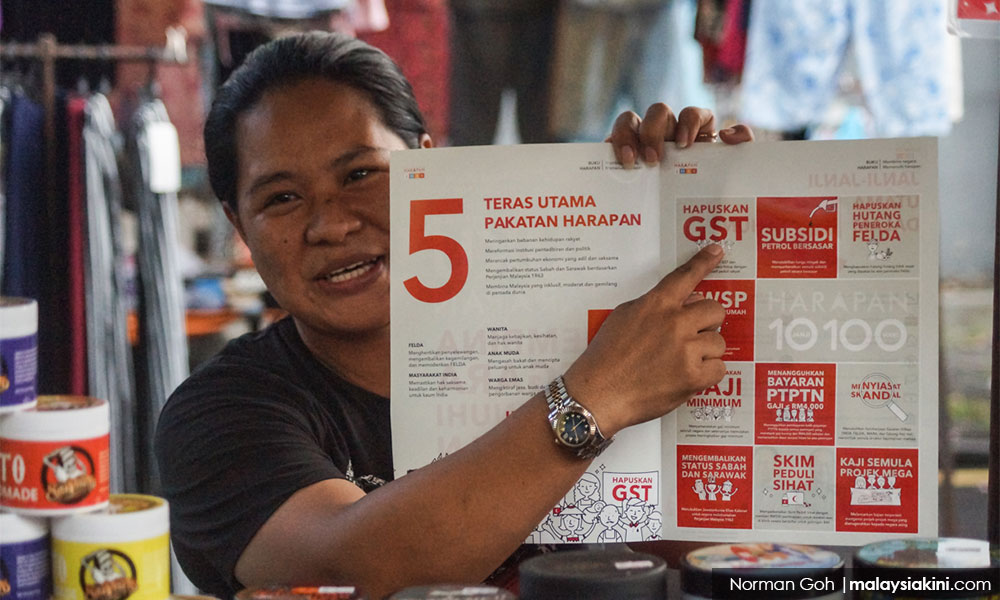
Published by Malaysiakini, images from Malaysiakini.
In the aftermath of Semenyih and on the brink of Rantau, surely the top leadership of Pakatan Harapan must soon be gathering to really take stock of where they are, and where they are headed.
The best and brightest in Malaysian politics – Liew Chin Tong, Nik Nazmi Nik Ahmad, Ong Kian Ming and Syahredzan Johan – have long been pushing the same point again and again: the nation needs a strong new narrative.
In order to get back on track, Harapan leadership should focus this new narrative on three simple areas: being a government of vision, a government of diligence and a government of unity.
A government of vision is a government with a roadmap. First and foremost, it needs to know where it is headed.
Secondly, it needs to ensure that everyday Malaysians also know where it is headed, and are inspired to be a part of that journey.
Imagine a hiking expedition led by a group of leaders.
By right, the leaders should agree on a clear roadmap, indicating where they want to go; and these leaders should follow this roadmap together, leading with a strong sense of purpose.
At present, it feels like the leaders of our expedition are all standing around awkwardly, facing different directions, milling about, with nobody really knowing what is going on.
This obviously makes the rest of the expedition, the ones who chose these leaders in the first place, frustrated and disappointed – with no qualms about expressing their frustrations. Politically, it’s hard to imagine a worse scenario.
This is not the time for the leaders to stand around fighting and blaming each other, or investing all their time and energy trying to cut the leadership queue.
This is a time to sit together and hammer out a solid roadmap.
Know where we are headed
There already exists a document that can be used as the foundation of the roadmap – the Harapan GE 14 manifesto (which can be recalibrated as necessary and within reason).
We must also remember that the best roadmaps will detail how everyday Malaysians can play a participatory role in reaching our New Malaysia, as only an inclusive plan which everyone feels a part of has a chance of succeeding.
Once this roadmap has been decided (sooner, rather than later), then it’s time to stand up, tell everyone (loudly and clearly) exactly what the plan is, and start striding forward together on the path that has been laid out.
Do this well, and all of Malaysia will stop getting angry about listless and aimless leaders, and follow the government’s lead.

Secondly, a government of diligence is one that talks less and works more. An important part of the roadmap above is key performance indicators (KPIs).
In science and academia, a hypothesis that cannot be tested is fairly useless. In business and governance, goals and targets whose progress cannot be tracked are equally useless.
Once the goals of the roadmap are decided, there must be clear, tangible and transparent methods through which progress towards these goals can be tracked – methods which must be accessible and understandable to everyday Malaysians.
These KPIs and tracking methods should be mandatory for each ministry and should serve as an incentive for working hard and achieving goals.
I daresay most people vote based on how they answer a very simple question: is the government doing well, or doing badly?
Not only is Harapan failing to convince the people that they are doing well, but they are also failing completely to effectively communicate what they are doing at all.
This creates a vacuum, which is all too easily manipulated to become resentment and frustration at a government which is viewed as inept.
Providing regular updates on clear, transparently trackable KPIs for each ministry – especially with regards to manifesto promises – will give Malaysians plenty of answers to the question “Is the government doing well, or doing badly?”

Thirdly, a government of unity always puts Malaysia first, and politics second.
Malaysians are not naive. We don’t expect politicians to behave out of the goodness of their hearts, and go against the grain of basic political nature – which is to chase power, and to aspire to retain it.
Even following the logic of political self-preservation however, the following points are valid.
Focus on shared purpose
The lack of a formidable opposition in Malaysia (while fast growing in formidability) may have lulled Harapan into the false understanding that their primary political competitors are inside, and not outside, Harapan itself.
Political news cycles are finite in space. If Harapan keeps filling it with move after move that undermines confidence in coalition unity, then this disunity becomes the dominant narrative.
This is what happens whenever anyone publicly attacks the Harapan leadership succession plan, where Prime Minister Dr Mahathir Mohammad is supposed to be in power for about two years, and then hand the reins over to PKR President Anwar Ibrahim.
It doesn’t matter if the call comes from rogue Harapan leaders or columnists aligned with one leader or another; the resulting public impression engenders cynicism and a severe loss of confidence in the coalition as a whole.
The same thing happens when there is a clear trend of some Harapan parties taking in an excess number of ex-BN politicians. Other Harapan parties will then read this as a move to alter the balance of power within Harapan, and this creates an arms race scenario.
If Harapan is serious about governing and governing well, they should strongly consider freezing the Harapan internal cold war.
This means to maintain everything at status quo, especially the number of seats per party in parliament, and the succession plan. This will result in some much-needed stability.
Ultimately, Harapan has to choose between fighting internal battles or focusing on the bigger war, which is governing well and winning the next general elections.
Time and resources are limited, and they cannot do both.

I don’t think Harapan has been doing a bad job necessarily, in their first nine months of governing.
Harapan must remember, however, how much politics is about perception.
Without a unifying narrative, even good announcements – such as the new 5G network, or our palm oil deal – become too ad hoc, and lost in a sea of political drama and infighting.
With a proper roadmap and narrative, each of these good initiatives is brought together as part of an overarching endeavour – becoming a whole which is greater than the sum of its parts.
Done right, this will more than eclipse all the other attempts to divide Malaysia via archaic identity politics and hateful division. Those have only found footing because of the vast vacuum left behind by a lack of effective strategic communication.
In order to plan and execute this narrative, we cannot rely on operatives who may be stuck in the old ways – the days where mainstream media reigned supreme and unchallenged.
With all due respect to my seniors in the media industry, today’s communication landscape requires a fresh mentality and a firm grounding in today’s realities. We need hungry, young Malaysians leading the charge, not tired mandarins using outdated weapons.
The time is beyond ripe for the right roadmap. More than ever, Malaysians are eager to band together, and do their part to make this New Malaysia a reality they can see, touch and feel.
All they are waiting for is for their leaders to make the right first steps – to truly become a government of vision, diligence and unity.
Nathaniel Tan is Director of Media & Communications at EMIR Research, an independent think-tank focused on strategic policy recommendations based upon rigorous research.

